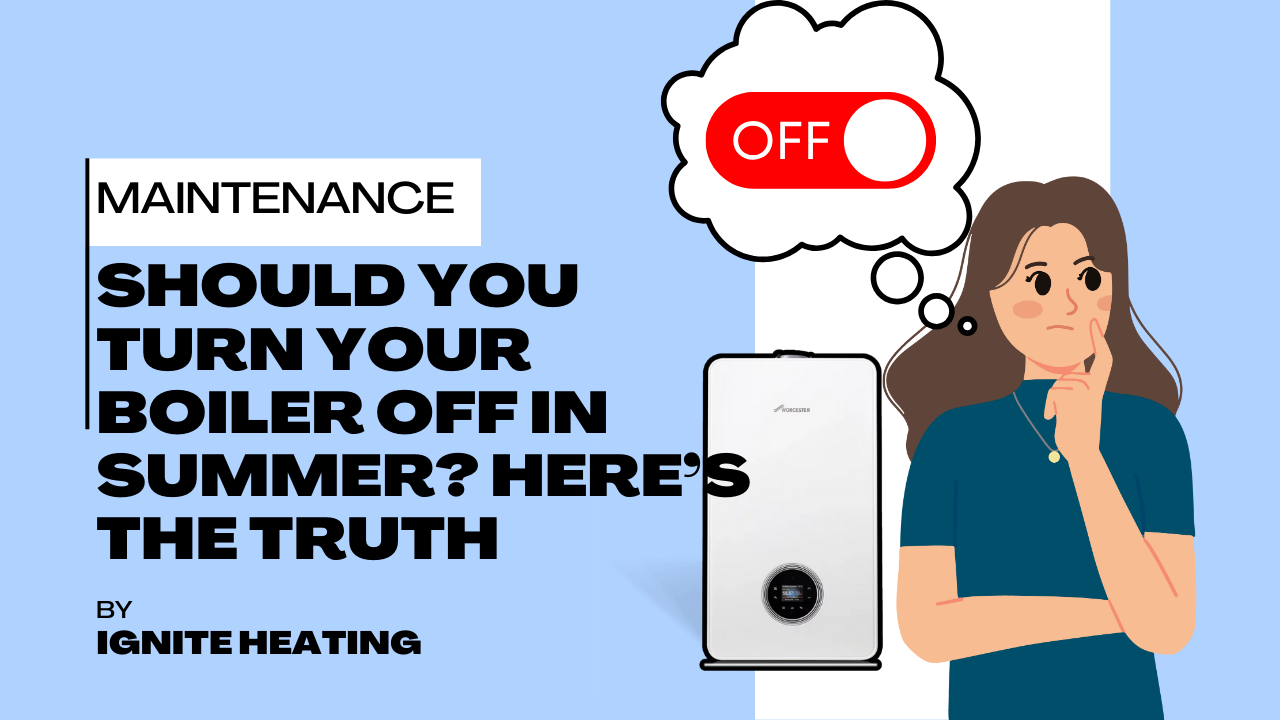
Should You Turn Your Boiler Off in Summer? Here’s the Truth.
Search Should You Turn Your Boiler Off in Summer? Here’s the Truth. Summer’s here finally. The sun’s shining (most days),

Winter is here, and there’s nothing worse than a boiler breakdown on a freezing day. A well-maintained boiler keeps your home cosy, reduces energy bills, and prevents costly repairs. Follow these tips to keep your boiler in top shape this winter.
Don’t wait for the first frost to check your boiler—be proactive and test it before winter sets in. To keep your boiler in good condition year-round, run it periodically during the summer. This prevents components from seizing and ensures smooth operation when you need it most.
Turn your boiler on for a short period and monitor its performance. Listen for any unusual noises, such as banging or whistling, which could indicate a problem. Check whether the radiators heat evenly, as uneven heating might signal trapped air or other issues. An early check allows you to identify and resolve problems before colder weather arrives.
Air trapped in radiators can significantly reduce heating efficiency, but bleeding them helps ensure consistent warmth throughout your home. To do this:
Turn off your heating system.
Use a radiator key to slowly open the valve at the top of the radiator.
Allow trapped air to escape until water begins to flow.
Tighten the valve securely and turn the heating back on.
Small leaks can escalate into major issues, especially when your heating system is working overtime during the winter. Look for signs like damp patches around the boiler or pipes and visible rust or corrosion on the boiler. Detecting and addressing these issues early helps prevent costly repairs and keeps your system running efficiently.
Maintaining the correct boiler pressure is essential, as both low and high pressure can cause inefficiency or system failure. Most boilers should maintain a pressure level between 1.0 and 1.5 bar, which you can check on the pressure gauge.
If the pressure is too low, increase it using the filling loop. If it’s too high, bleed a radiator to release the excess. If you’re unsure about the process, consult your boiler’s manual or contact a professional for guidance.
To operate efficiently and safely, your boiler needs space and proper ventilation. Remove any clutter from around the boiler and ensure vents and flues are clear of obstructions. Adequate airflow prevents overheating and helps maintain optimal performance.
Professional servicing is vital for your boiler’s safe and efficient operation. A qualified heating engineer will:
Inspect the boiler for wear and tear.
Clean and optimize internal components.
Ensure compliance with safety regulations.
Annual servicing helps maintain peak performance and keeps your warranty valid, offering peace of mind throughout the winter.
A smart thermostat provides the convenience of controlling your heating remotely, making it both comfortable and energy-efficient. With a smart thermostat, you can:
Set heating schedules to match your routine.
Monitor and adjust your boiler’s performance from your smartphone.
Save money by minimizing unnecessary heating.
Unusually high energy bills could signal a boiler issue. If your bills spike unexpectedly, check your boiler settings to ensure they are optimized for efficiency. Consider the age of your boiler, as older models are often less efficient. If the problem persists, consult a professional to explore upgrading to a newer, energy-efficient model.
If your boiler stops working, follow these steps to troubleshoot:
Check the thermostat to ensure it’s set correctly.
Verify that the boiler has power and that the pilot light is on.
Look for error codes on the display and consult the manual.
If these steps don’t resolve the issue, call a professional plumber for assistance.
A little maintenance goes a long way in preventing boiler breakdowns and ensuring a warm, worry-free winter. By following these tips, you can keep your heating system running smoothly and your home cosy all season long.

Search Should You Turn Your Boiler Off in Summer? Here’s the Truth. Summer’s here finally. The sun’s shining (most days),

Search Should I Upgrade My Central Heating System Before Winter? Winter in the UK can be brutal, with freezing mornings,
© 2024 Ignite Heating. All rights reserved